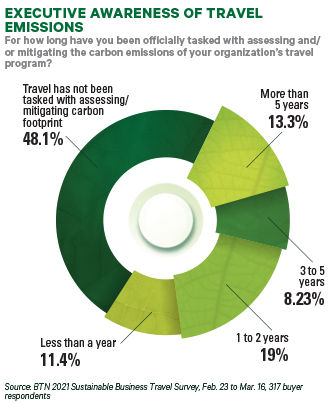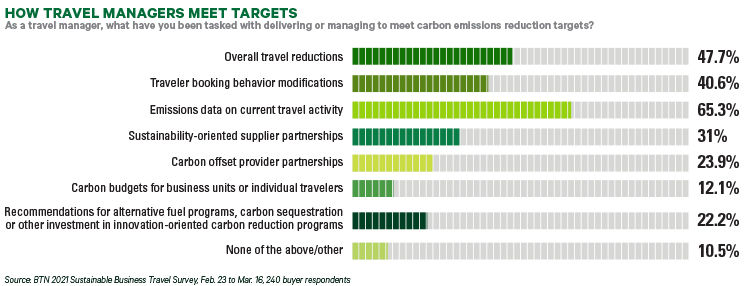Microsoft was an early mover in the drive toward sustainable
business travel practices. The technology giant has offset all business travel
emissions since 2012, according to global director of travel, meetings and
payment Eric Bailey. In 2019 the company joined a partnership with KLM to
support sustainable aviation fuel production as a way to increased demand for
and invest in the future of sustainable travel. The company has since signed a
similar commitment with Alaska Airlines. Upon joining the KLM program, Bailey
underscored the role corporations and powerful travel managers have in
accelerating sustainability efforts in the travel industry.

“Small changes can have a big impact when it comes to
climate change, especially when those changes are made by large global
corporations,” he said in October 2019. “Today represents a step change, where
we’re moving beyond our employee impact, towards using our influence to drive
industry-wide shifts reducing air travel emissions.”
Several other companies joined the KLM program. In 2019, the
airline had signed 14 organizations, including big corporate travel names like
Accenture. In 2021, that participant number has inched up to 16, and other SAF
efforts focused on business travel and corporate partnerships have also
emerged.
United announced this month the Eco-Skies Alliance with
initial participation from 11 corporate partners including Autodesk, BCG, CEVA
Logistics, Deloitte, DHL, DSV, HP, Nike, Palantir, Siemens and Takeda
Pharmaceuticals. The collective will help United purchase more than 3.4 million
gallons of SAF this year. Another alliance announced last week by EMI and the
Environmental Defense Fund is the Sustainable Aviation Fuel Alliance. The group
will focus on standards, SAF emissions accounting and policy, and will
additionally work on reducing barriers to innovation and achieving production
at scale, as well as SAF certification and investment opportunities. Founding
members of the alliance include Boeing, BCG, Deloitte, JPMorgan Chase,
Microsoft, Netflix and Salesforce.
Investing in SAF, which has long been a focus for the
airline industry, is just one way to reduce business travel emissions. There
are more, see chart below.

SECTION 3: The Race to Zero - Science-based Targets & Net Zero Announcements
Throughout 2020 and into 2021 companies have declared their
commitment to science-based targets and achieving net zero emissions, often
tied to the 2030 deadline set by the Paris Climate Accord. continue...
SECTION 4: Reducing Business Travel Emissions Is a Journey
Companies with a large percentage of emissions tied to
business travel—like the consulting and professional services companies cited
above—might prioritize Scope 3 emissions reductions over other targets. continue...
SECTION 5: More TMCs Getting on Board
Nearly seventy percent of the respondents to BTN’s survey
relied on their travel management companies and booking tool partners to
provide the data and decision-making support required to plan for sustainable
travel. continue...
SECTION 6: Changing the World
Rather than putting a hard stop on travel, corporate
partnerships and travel managers should prepare to play a huge role in changing
the travel industry, because demand for sustainable solutions will catalyze
innovation. finish
this article